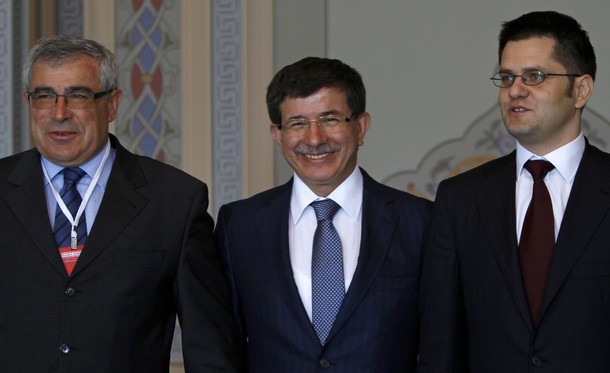
From Marc Champion, the Wall Street Journal: Over the past 18 months, Turkey has built a strong relationship with Serbia’s pro-Western government under [Serbian President Boris] Tadic and organized a series of three-way meetings with ex-Yugoslav neighbors.
Ankara also played a key role in securing NATO’s April decision to grant Bosnia a formal road map toward joining the alliance, despite deep reservations in Germany, the Netherlands and the U.S. about the moral hazard of offering Bosnia a route to membership when it hadn’t fulfilled all conditions.
Within Serbia, Turkey’s foreign minister last year successfully mediated a dispute that had led to violence between two political factions in the Orthodox Christian nation’s majority Muslim Sandzak region, according to Western diplomats familiar with the matter. Two prominent Sandzak politicians supported rival Muslim clerics who in turn answered to rival muftis in Sarajevo and Belgrade. …
Turkey was Bosnia’s fourth-largest investor in 2009, according to the country’s Foreign Investment Promotion Agency. Turkish Airlines says it is in talks to buy Serbia’s main airline, JAT, having bought a 49% stake in Air Bosnia in 2008. …
Not everybody accepts the growing Turkish role in a region that was under Ottoman rule for five centuries. Milorad Dodik, leader of Bosnia’s Serbian entity, Republika Srpska, has said Ankara arrives with too much historical baggage and is pushing exclusively for the interests of Bosnia’s Muslims, a charge Turkish diplomats deny. …
And not everything has gone to plan. A May visit to Belgrade by Bosnian Muslim President Haris Silajdzic, negotiated with Turkish mediation, was postponed when he said he wanted to visit a Bosnian Croat convicted in a Serbian court as a war criminal. Belgrade refused.
And while NATO gave Bosnia a Membership Action Plan, it won’t become operational until elusive conditions, such as agreeing on the status of military real estate, are fulfilled. (photo: Reuters)
Image: reuters%207%2012%2010%20%20Sven%20Alkalaj%20Ahmet%20Davutoglu%20Vuk%20Jeremic.jpg
